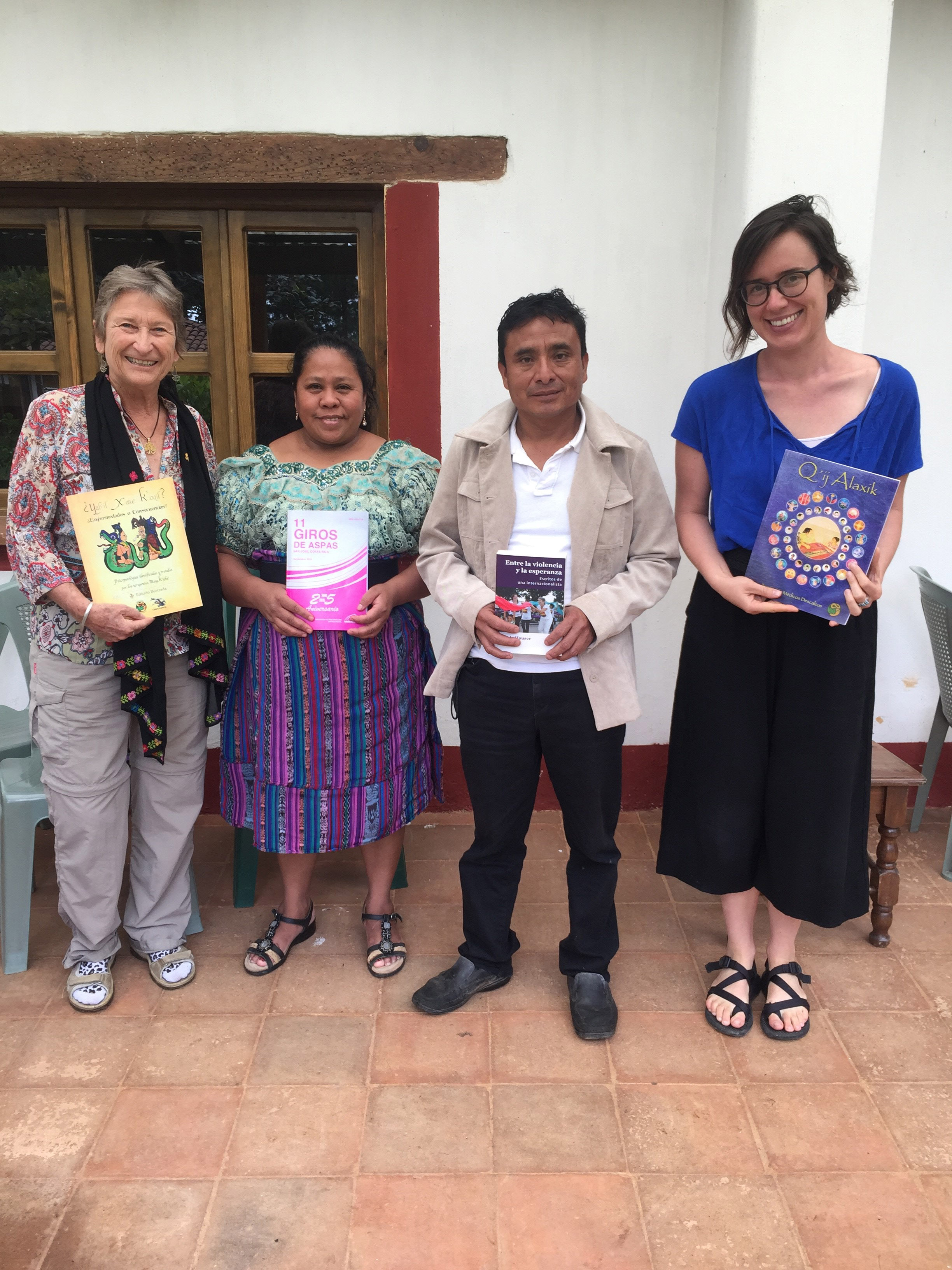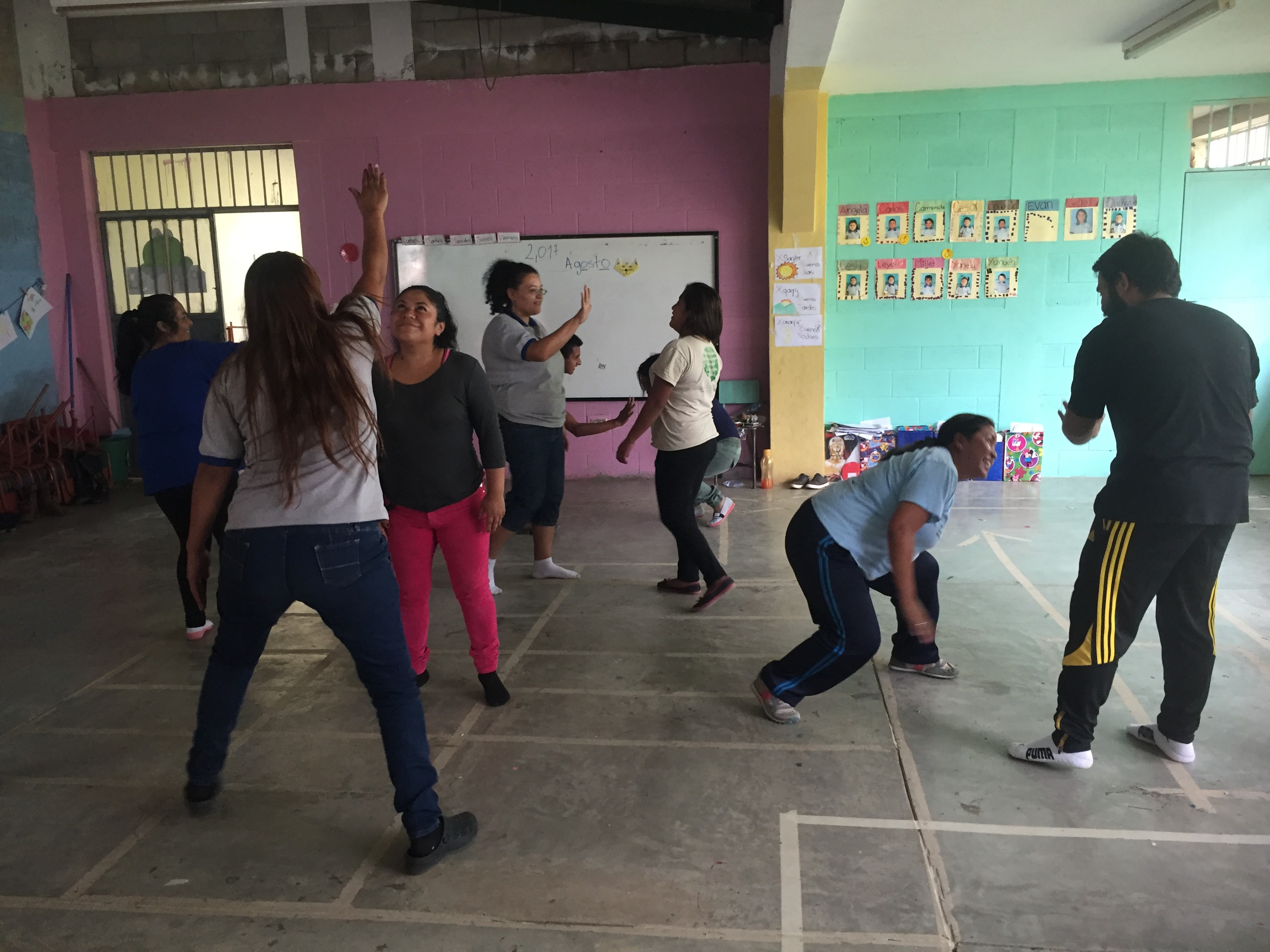Rebecca Patterson-Markowitz 2017 Field Report
2017 CLAG Field Study Award Report:
Rebecca Patterson-Markowitz, Masters Student, School of Geography and Development, University of Arizona.
Project: Co-Producing Healing in Post-Conflict Guatemala: a Case Study, Guatemala City, Guatemala.
How societies can and should address the legacies of violence and injustice wrought by conflict is the question at the center of the field and practices of Transitional Justice. Top-down mechanisms often fall short of making adequate repair for the complex lived experiences of trauma that are ongoing in survivors psyches, bodies and communities long after a conflict period has ended. My research sought to gain insight into these on the ground practices of reparations.

Seeing systematized Maya healing practices at Médicos Descalzos
With support from CLAG I was able to spend this summer in Guatemala City researching Guatemalan NGOs who are working with survivors of sexual violence from the internal armed conflict to define justice and healing. During my 7 weeks in the field I conducted 15 semi-structured interviews, did participant observation, and collected pertinent institutional literature, which I am now in the process of analyzing for my MA thesis. I will present my findings at the UA Tinker symposium in November and at the American Association of Geographers Conference this spring.
My preliminary findings show that the demands of survivors and organizations alike are shaped by the guarantees of the 1996 Peace Accords for justice, reparation, and non-repetition. However there exists an array of institutional approaches for deciding what this actually means in practice and how psychological or psychosocial support is provided to survivors. This depends on the training of the individuals that make up the NGOs as well as the institutional situatedness in human rights, feminist, and/or indigenous Maya frameworks
In the larger Guatemalan context there is still an uphill battle for recognition of survivors’ rights to repair and recognition of other pervasive inequalities that in part structure the lives of many Guatemalans. This manifests nationally as different narratives of history are still contested, and at the local level, for example in the town of Sepur, where the verdicts of national courts in Guatemala City are questioned and interpreted in different ways. However, there is a sense of hope in the current climate, particularly with the Sepur Zarco victory.
Please read the full report for more details.

Recursos Corporales Workshop


















